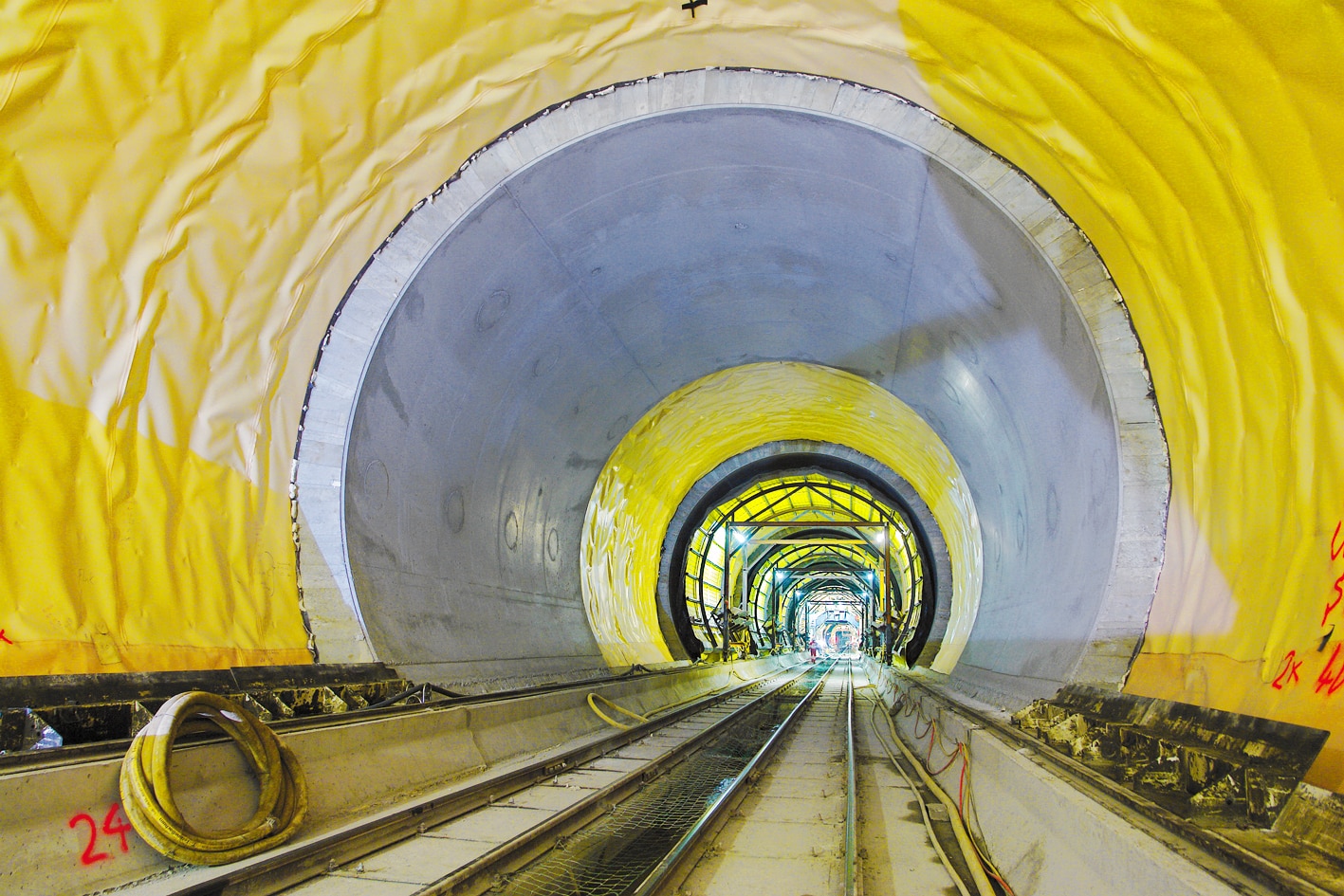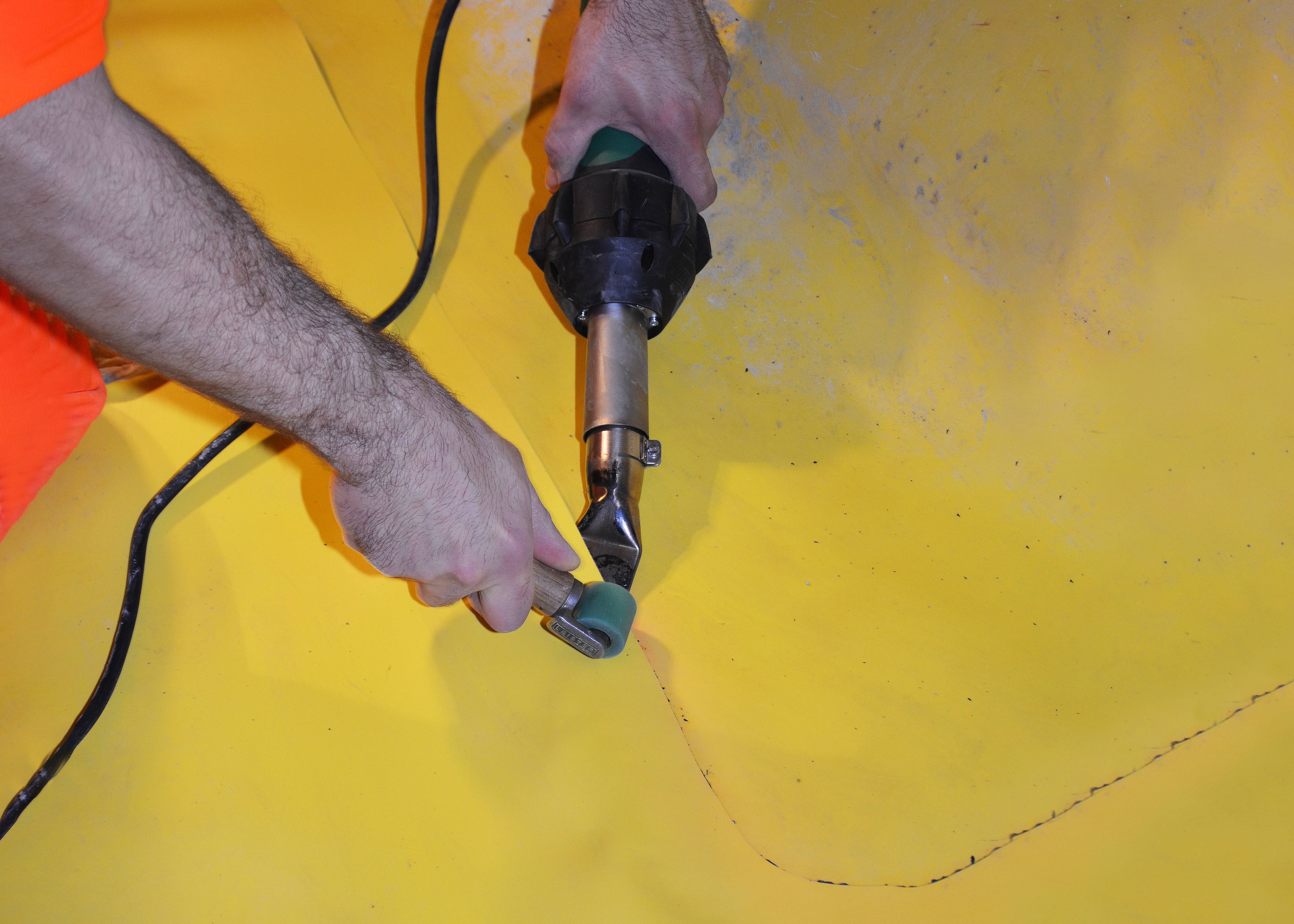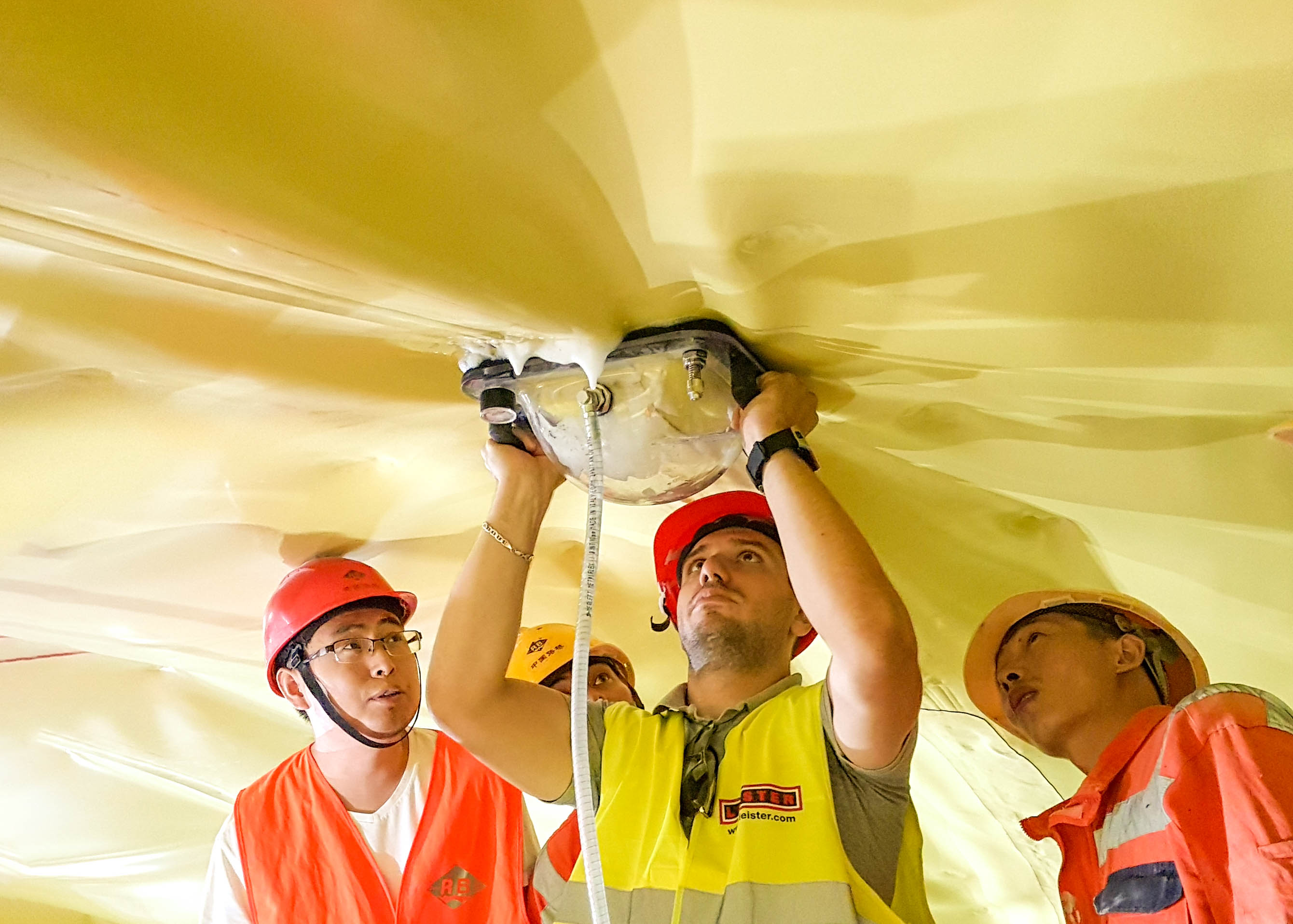

Welding the geomembrane lining and the side walls in tunnels (sometimes referred to as elm trees) is no less strenuous. Using a hot air hand tool or automatic welder in the required position for several hours requires stamina and strength. In addition, a correspondingly light and ergonomic tool is needed to generate high-quality welding seams on a consistent basis. Light and flexible automatic welding machines are required for "overhead welding." With TWINNY S, TWINNY T, COMET and UNIDRIVE 500, Leister offers several suitable machines that are ideal for waterproofing membranes in tunnels.

In tunnel construction, not everything can be sealed with the GEO automatic welding machines from Leister. For welding connections and similar work, hand extruders are used to seal seams with welding rod. Handy heat guns are used for detail work since automatic welders are too large.

Test needles, punching devices for test samples and test bells are particularly important in tunnel construction. It is essential to avoid structural defects and damaged areas such as holes and cracks in the material. Therefore, it’s important to pay special attention to the accessories needed for quality testing in tunnels. Leister is an excellent provider of the appropriate testing equipment needed for testing the weld seams and making work easier.